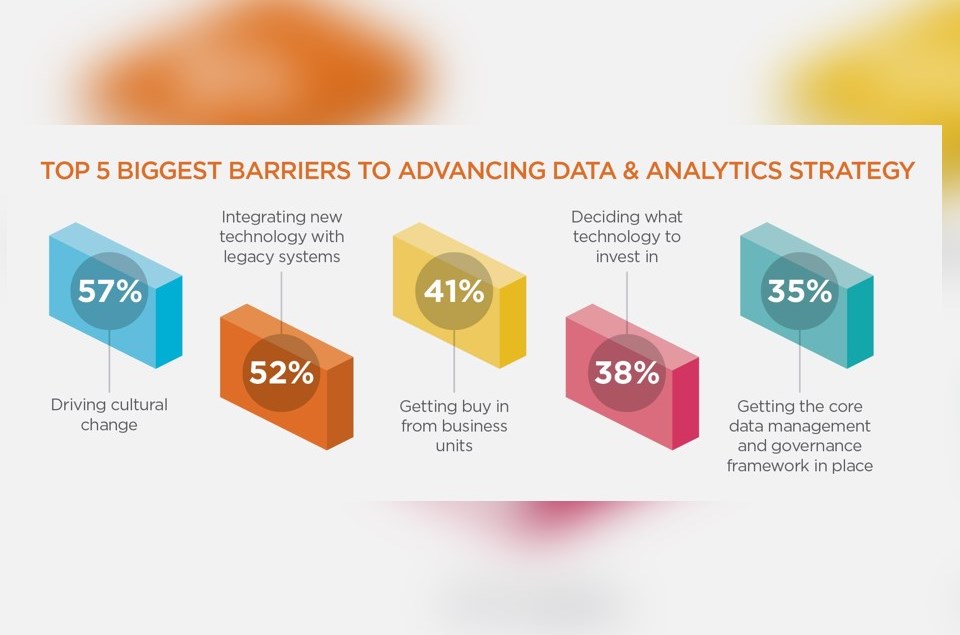For many organizations analytics and artificial intelligence (AI) are indispensable tools for business success. However, there are many senior executives who don’t trust in the way their organization utilizes analytics, data or AI. Why is this the case?
The Circle of Data, Analytics, Trust and Confidence
According to a report recently released by advisory and tax firm KPMG International which surveyed over 2190 global senior executives, surprisingly just 35% of respondents said they have an elevated level of trust in the way their organization utilizes data and analytics. This means a whopping 65% of respondents have some reservations or mistrust in the reliability of the results that their analytics and data is providing them.
Often organizations run two processes simultaneously, a process managed by machines and a process managed by people, and these processes determine whether machine-generated insights are aligned to those delivered by people-generated processes. The survey showed that this often happens because many executives don’t have sufficient confidence that their insights are reliable and accurate.
92% of respondents to the survey said they are hugely concerned about the negative impact that data and analytics has on their organizations corporate reputation, with many senior level executives (62%) saying that the IT department is responsible when a machine or algorithm does not work as expected, or produces the right results, as opposed to the C-suite.
Who is Accountable for the Reliability of Data?
It is suggested that the growing relationship between people and machines calls for greater accountability for the amount of trust that goes into data and analytics from the C-suite rather than from the IT department within organizations. It is essential that operational controls to help maintain trust are in place along with proactive governance.
With many organizations changing to digital and fully analytically driven enterprises the management of machines is becoming as important as the management of people and in some cases, this is even more important. As analytics and AI merge together, it will be essential to manage the trust that is placed in analytics and data. The governance of machines should be become a key part of the governance of the organization.
Although 62% of respondents said the primary responsibility of the accuracy of data and analytics lies with their IT departments, 25% thought that the C-suite should have this responsibility, and 13% felt the responsibility should lie with regulatory bodies. Even with a low level of trust over the financial risk of analytics errors or the reputational risk to an organization, it still isn’t clear who would be accountable if an unfortunate business decision taken because of inaccurate data and analytics results in monetary loss or the loss of key clients or customers.
There are five recommendations that will help with building trust within an organization in their data and analytics:
- Create effective procedures and policies with a prominent level of standards.
- Create professional codes of conduct for CDO’s and CDS’s.
- Greater transparency of algorithms and methodologies through all parts of an organization.
- Identify any weak points by strengthening internal and external processes.
- Look at any internal and external assurance mechanisms that identify and validate any weak points.
- Regularly review any key relevant regulations to help build confidence in data and analytics.
Does your organization trust in the reliability and accuracy of your data and analytics? What other areas need more work for a greater level of trust in data and analytics to be achieved? What things can be improved for a greater trust in data and analytics to be realized?
Join in the conversation in our CDO Hangout group on LinkedIn.








